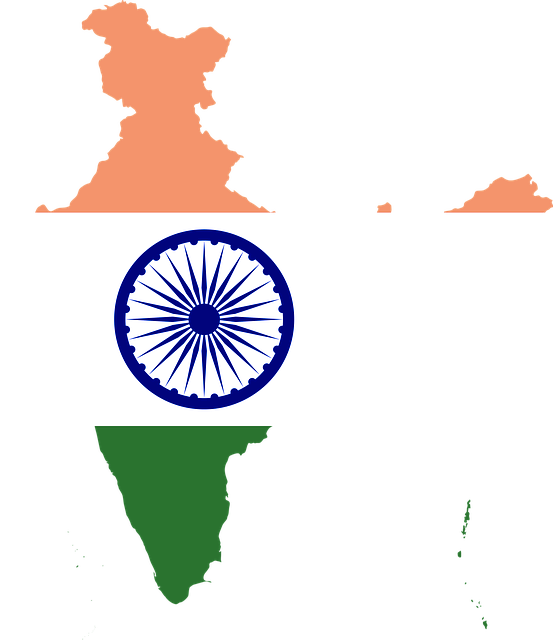
Spain
Spain is recognized as a pioneer in the fight against violence against women following the adoption of the law of 28 December 2004 which aims to ensure comprehensive protection against gender violence. Its legislation is considered to be among the most progressive legal texts in Europe on the subject and is often taken as a model by feminist associations claiming similar legal frameworks.
“Gender violence is not a problem that affects the private sphere. On the contrary, it represents the most brutal symbol of the existing inequality in our society. »
By adopting a definition of gender violence as violence against women solely because they are women, Spanish legislation provides for positive discrimination against women. This gendered apprehension has given rise to a flurry of appeals before the Spanish Constitutional Court. It was argued that this way of viewing violence was unconstitutional and discriminatory. The Court definitively settled the question in May 2008 by affirming that the differential treatment operated between men and women does not constitute a form of discrimination since there is an objective and reasonable justification for it. Indeed, violence by a man is an expression of the serious inequality that women experience. In doing so, the Court upheld the constitutionality of the legislation.
Important measures have been implemented thanks to this law:
Specialized courts:
Courts specializing in domestic violence have been created. The judges who compose them have thus undergone compulsory training before being able to join a court specializing in the issue. Currently, there are 106 courts specializing exclusively in this matter and 355 also dealing with other matters. This measure seems to us to be particularly appropriate given the need to perceive the underlying mechanisms at work in the case of domestic violence and to understand how these are part of relations of domination. These elements seem essential to us to better understand these cases.
The ban on mediation:
The law provides for a ban on recourse to mediation, both civil and criminal, in cases of violence perpetrated against women. In doing so, Spain is in line with the Istanbul Convention which also recommends this prohibition in its article 48. However, this measure was contested by professionals in the legal world and social work, the latter considering that it was appropriate in certain cases. Thus, during a survey carried out in 2010, in Catalonia, a large majority of judges considered that it was appropriate in cases where “the violence was limited in time, of low magnitude and produced by the dissolution of the marital bond”. . This way of thinking is open to criticism. Indeed, the fundamental principles characterizing mediation, namely the equality of the parties, the neutrality of the mediator, the secrecy of the sessions and the desire to obtain fair solutions do not seem to us to be achievable in the event of domestic violence and go to the against the interests of the victims. The latter experience, in fact, great difficulty in being confronted, again, with their (ex) aggressors and risk suffering secondary victimization. Shouldn’t justice represent a reassuring framework allowing women to feel confident and not a place reproducing certain forms of violence?
The anti-reconciliation bracelet:
The 2004 law gives judges the possibility of requiring perpetrators of domestic violence to wear an electronic bracelet. The individual concerned will therefore be obliged to wear this device called “anti-reconciliation bracelet” and to carry a kind of telephone which will allow him to be located. He will be prohibited from approaching the victim beyond a certain defined perimeter. In the event that he does not respect this injunction, the protected woman will be notified, by a telephone which is also issued to her, as well as the police who will intervene immediately. The device, set up in 2009, proved. In 10 years of use, no feminicide has been committed against a protected person. It therefore appears that the deterrent effect is fully achieved. En outre, certaines femmes qui en bénéficient ont affirmé se sentir protégées depuis la mise en place de bracelets.
India
More than one in three women (37%) who commit suicide worldwide live in India. This is the conclusion of a study published on September 11, 2018 by the British scientific journal The Lancet.
“Female suicide is a major public health issue, with far-reaching socio-economic, political and emotional consequences. »
For Kamala Marius, associate researcher at the University of Bordeaux Montaigne and the French Institute Pondicherry, and author of the book Gender Inequalities in India (Karthala, 2016), the modernization of the country has caused an increase in suicides, especially among women under 35, mostly married. “With the rise in the standard of living, there is a greater openness to the possible world, and therefore to the awareness of what we don’t have compared to others,” she says. Female suicides account for 41% of suicides in India. The phenomenon would also be due to the issue of forced marriage in India.
What is forced marriage?
The definition of forced marriage is being married against your will, to someone known or even unknown. However, according to article 16 of the Universal Declaration of Human Rights: “Everyone has the right to marry and found a family without any restrictions as to race, nationality or religion. Marriage can only be concluded with the free and full consent of the future spouses.”
Alarming figures of forced marriage of underage girls in India
According to forced marriage statistics, nearly one in five Indian women are forced to marry before the age of 15. In 2014, India alone accounted for a third of underage marriages on the planet.
A law has been promoted to stem suicide linked to forced marriage.
India is the only country in the world, with France, to severely condemn forced suicide. Article 306 of the Penal Code provides that “any person who incites another person to commit suicide is liable to a prison sentence of up to ten years, as well as a fine”. Since 1983, Indian law has provided for specific and more severe provisions in the case of suicides of women who have been married for less than seven years, in view of the increase in dowry deaths, literally “deaths linked to the dowry”. At the time, more and more young brides committed suicide as a result of ill-treatment, even torture, inflicted by their in-laws whose dowry demands had not been met. These practices unfortunately still exist.
Testimony of forced marriage
The Gopalan Nair Krishna Pillai case, Kerala state, 1988. The offender was committing acts of violence against his wife because she did not meet his dowry demands. While the victim earned enough to cover household expenses and gave birth to a son as he wished, the husband continued to demand that she ask her parents for even more money. After their separation, the husband’s lawyer brokered a compromise and assured the wife that she would be safe. However, the husband continued to demand more money, which the victim demanded from his mother. When the victim did not pay immediately, she was beaten, and she ended up committing suicide. The husband was found guilty of incitement to suicide.
In July 2021, in India, four young women under the age of 25 committed suicide following domestic violence, Vismaya 22 years old, Archana 24 years old, Suchithra 19 years old and Anuja 21 years old.


Italy
Until 1981, in Italy, the murder of an unfaithful wife by her husband was justified as an honor crime and the perpetrator incurred only a light sentence. This misogyny has not yet completely disappeared, however. In fact, the progressive emancipation of women clashes head-on with the still current conception in certain social strata of women as objects of possession and control.
In 2013, domestic violence affected one in three women. As a result, on October 15, 2013, a law was passed, containing urgent provisions in the fight against gender violence.
Several measures are taken:
- The legislation introduces heavier penalties and aggravating circumstances, especially if the violence is perpetrated in the presence of a child or against a pregnant woman.
- In addition, the law provides for the arrest of perpetrators of violence caught in flagrante delicto or flagrant crime. The protection put in place extends to all victims of a violent partner, whether they are married, divorced, separated or living together.
- If a complaint is filed by a victim of violence, it can no longer be withdrawn and prosecution will be mandatory.
- In addition, the law establishes the expulsion of the violent spouse from the marital home. The women victims will be kept informed of the status of the proceedings concerning him.
- The legislation also further establishes the granting of financial aid to victims, regardless of their income.
- Finally and even more fundamentally, this law is called the “feminicide law”. In doing so, Italy is the only European country to have adopted legislation including in extenso the notion of feminicide (without however enshrining it as a specific offence).
Additional legislation was passed on July 19, 2019 amending provisions relating to the protection of victims of domestic violence. Named “codice rosso”, red code, it introduces four new offenses within the matter of violence perpetrated within the framework of a romantic relationship. The offenses of revenge porn, disfigurement of the person, forced marriage and finally, violation of the measures of expulsion pronounced against a violent spouse are thus covered. In addition, the legislation also establishes harsher prison sentences and expedited criminal proceedings. Thus, in this regard, victims of domestic or gender violence must be heard by the magistrates within three days of the filing of their complaint.
Conclusion
Need for European recognition of the concept

Terms
legal
The Committee on Equal Opportunities for Women and Men of the Parliamentary Assembly of the Council of Europe (PACE) organized the hearing on 8 June 2011 of Marie France Hirigoyen, psychiatrist, and Yael Mellul, member of our project team, to take stock of the situation in the member states of the Council of Europe with, as an objective, the recognition of psychological violence as an offense and its inclusion in the Convention to prevent and combat violence in the against women and domestic violence. For psychiatrist Marie-France Hirigoyen, making psychological violence an offense is a means of acting upstream, of preventing; but without education of all stakeholders, including judges and police, it is inapplicable.
In conclusion, Elvira Kovacs (Serbia, EPP/CD, responsible for preparing a report on this subject, felt that psychological violence should be criminalized even if it is difficult to prove, and included in the Council Convention of Europe to prevent and combat violence against women and domestic violence.
Thus, the Council of Europe Convention on preventing and combating violence against women and domestic violence, adopted on 11 May 2012, established as a criminal offence: the fact, when committed intentionally, of undermining the psychological integrity of a person by coercion or threats (Article 33 – Psychological violence).
It is now a matter of going further and integrating the most extreme traumatic consequence of harassment, suicide and attempted suicide, so that this essential principle is enshrined: moral harassment also kills, in the same way than physical violence.

Epidemiological terms
The number of forced suicides remains little or not documented. Several studies carried out in France. In the United Kingdom and the United States, however, tend to consider that they represent 12% of female suicides based on an estimate of the number of female suicide attempts attributable to violence within a couple. It is this ratio which was applied by the independent experts of Psytel, who provided an estimate for the needs of the Grenelle of domestic violence.
According to Psytel, 217 women would have killed themselves because of the violence exerted on them by their spouse, in 2018 in France.
In a forthcoming deliverable (D3.1, available at the end of November 2021), we will come back in more detail to these estimates, which we will try to carry out at the level of all MS, taking into account the results of more recent studies.

Terms
policies
The concept of moral harassment of a spouse is accepted in the majority of States, but nothing is provided for in the event of the death of the victim. France is the first State in Europe to have added an aggravating circumstance in the event of suicide or attempted suicide. The person responsible will then be tried before a Criminal Court and the penalties incurred will be 10 years’ imprisonment and a fine of 150,000 euros.
On the occasion of the 19th International Day for the Elimination of Violence against Women, France reaffirmed its commitment and its determination that the international community combat and eliminate all forms of violence against women. In conjunction with its European and international partners, France has launched a campaign aimed at universalizing the adoption of the Council of Europe’s Istanbul Convention on preventing and combating violence against women and domestic violence.
The purpose of the Istanbul Convention is to end violence against women and domestic violence, and to guarantee the fundamental right of women to live free from violence. The prevention of violence, the protection of victims and the prosecution of perpetrators are the pillars of the Convention, which affirms that the fight against gender-based violence can only be effective if States implement coordinated global policies.
It is in this spirit that the essential principle for combating all forms of violence must be enshrined in the Istanbul Convention and must be intended to be recognized in each Member State.

“Emotional abuse is the glue of domestic violence and should be seen as the psychological equivalent of murder. Without a psychic preparation intended to subdue her, no woman would accept physical violence. It is this psychic preparation intended to subdue her, no woman would accept physical violence. It is this psychic preparation, this psychological pressure, this violence of words creating a situation of domination, which leads irreversibly to the moral destruction of a being, then to the violence of blows.”
- Yael Mellul

“Many women do not know that they are victims of violence! At what point are we in a conflict between couples, at what point in violence? At the base, there is a social conditioning. Psychological violence is set up by insidious micro-violence, humiliation, denigration, then by insult, threats, financial pressure, harassment, social isolation. Control acts on three levels: cognitive, behavioral and emotional and it can lead to a kind of reciprocal addiction.”
- Marie-France Hirigoyen

“The law must criminalize any act intended to intentionally advise, encourage, induce or assist a person to commit suicide, or any attempt to do so.”
- ONU Femmes

Contact us
info@forcedsuicidedomesticviolence.eu


